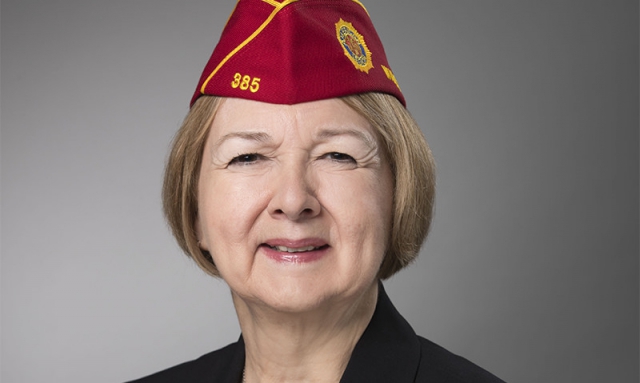
Suicide is a permanent nonsolution to a temporary problem. Life does get better, even if it doesn’t always seem possible.
Following his deployment during Operation Iraqi Freedom, Army Sgt. Daniel Somers was diagnosed with traumatic brain injury, PTSD and other war-related disabilities.
“My body has become nothing but a cage, a source of pain and constant problems,” the 30-year-old wrote to his family in 2013. “The illness that I have has caused me pain that not even the strongest medicines could dull, and there is no cure. All day, every day a screaming agony in every nerve ending in my body. It is nothing short of torture. My mind is a wasteland, filled with visions of incredible horror, unceasing depression and crippling anxiety, even with all the medications the doctors dare give .... Now, to sleep forever seems to be the most merciful thing.”
After writing this heartbreaking note, Somers took his life. Sadly, thousands of other veterans feel the same way – that suicide is their only choice, too. Losing even one of them is one too many.
An estimated 20 veterans a day die by suicide. They are not statistics. They are somebody’s son, daughter, father, mother, sister or brother. They are husbands, wives, boyfriends and girlfriends. They are our fellow Legionnaires. They are family.
According to VA, veterans comprised 8.5 percent of the U.S. adult population in 2014 but represented 18 percent of all deaths by suicide. Approximately 65 percent of those deaths were veterans 50 or older. The study also found that the risk for suicide among female veterans was 2.5 times higher than among non-veteran adult women.
Homelessness, opioid addiction and poor access to health care are factors in many cases. But even as we struggle to pin down the whys, the fact is that more veterans die every year from their own hands than all of the U.S. military fatalities in Iraq and Afghanistan since 9/11.
VA Secretary David J. Shulkin has indicated that he understands the scope of the problem. In a news release that revealed veteran suicide data for each state, he called VA’s findings “deeply concerning” and the reason he made suicide prevention his top clinical priority. “I am committed to reducing veteran suicides through support and education,” Shulkin said. “We know that of the 20 suicides a day we reported last year, 14 are not under VA care. This is a national public-health issue that requires a concerted, national approach.”
It also requires a concerted effort by every member of the American Legion Family. Talk to each other. Embrace veterans in your community, even when – or especially when – they appear isolated or depressed. Listen to the concerns of their spouses, children and friends. Above all, let them know they are not alone – and don’t leave them alone.
Veterans who are in crisis or have had thoughts of suicide should call the Veterans Crisis Line at 1-800-273-8255. Even if it’s out of concern for someone you know, I encourage you to call that number. You can also chat online at veteranscrisisline.net/chat or text to 838255.
Suicide is a permanent nonsolution to a temporary problem. Life does get better, even if it doesn’t always seem possible. Let’s stop this epidemic now.
- Magazine

